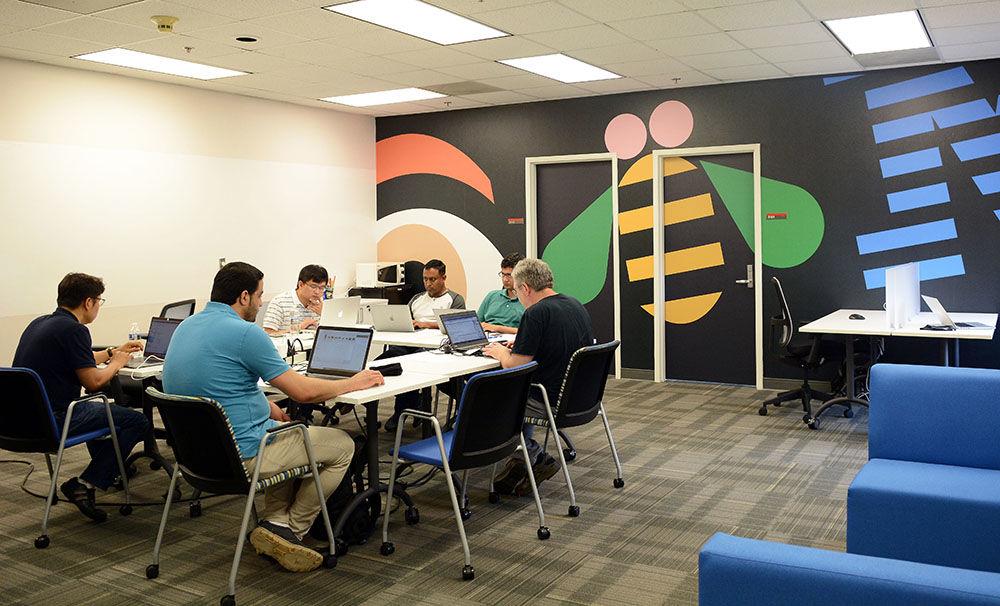IBM has selected NC State to be the first institution in North America to become a quantum computing hub (Q Hub) as part of IBM’s Q Network, that is working to advance quantum computing worldwide. NC State joins other Q Hubs across the world, the University of Oxford in the U.K., Keio University in Japan, and the University of Melbourne Australia.
For 30 years, IBM has had a close partnership with NC State since moving to North Carolina and a number of NC State graduates move forward to develop careers at IBM. This partnership strengthened when at the 50th anniversary of the computer science department at NC State, Dennis Kekas, associate vice chancellor, partnerships, and economic development, and Mladen Vouk, associate vice chancellor, research and development, began some dialogue with other members of faculty and employees at IBM.
“IBM basically said what do you think if we were to work something together in the area of quantum computing,” Kekas said. “Then, we took that on as a task and we’ve worked for seven months or so and that brings us up to where we’re at now.”
The Q Hub will provide students and faculty access to the 20-qubit processor system and will allow researchers to solve equations that take long periods of time to compute with a classical computer. Bob Sutor, vice president of IBM research, is in charge of quantum computing programs across the world.
“The answer for certain types of problems, not all problems, that quantum computers can get around this problem of exponential growth of the amount of memory that is used or the amount of time it would take,” Sutor said. “Nature, through quantum mechanics, somehow has access to computing power not tapped into using classical computing. No way can we create a computer with 10% of all the atoms of the earth. Yet, with a quantum computer, not one we have today but one we will likely have within a very few number of years, we can represent all that information exactly.”
The goal with the Q Hubs is to begin collaboration with Fortune 500 companies and universities to solve larger problems, faster. Sutor said that he envisions NC State working with local organizations to solve complex equations.
“The idea of the Hub is that they themselves, like North Carolina State, will be a center of excellence for quantum computing research, especially for the applications of quantum computing,” Sutor said. “They will collaborate with us at IBM research, but they will collaborate with local companies, perhaps other universities to work together.”
While the Q Hub is slated to begin working in Fall 2018, faculty members are in the stages of developing courses that are accessible for both undergraduate and graduate students to become more knowledgeable about how this technology should be used and operated.
“To use the Quantum computer, it requires some training,” Vouk said. “It’s totally unlike the classical computing, it works differently and behaves differently and requires extra understanding of principals. So one of the things we will do in the early fall is organize training through courses for students who might want to get a taste for quantum computing so they can use the program or be able to access the system. … Once the students can access the system, then that opens up the ability for them to try different things and learn and so on.”
Along with the appropriate classes, there are other resources available to students interested through books and online material, more specifically IBM’s Q Experience, a five qubit quantum computer on the internet that allows individuals from around the planet run their own experiments through the website.
Chancellor Randy Woodson discussed how he believes that quantum computing is interdisciplinary, not just something used only by computer science or engineering majors. Woodson said that there are problems that need to be solved from a wide variety of topics and NC State was the place to think of how to do so.
“The problems themselves come from all of these disciplines and that’s why they wanted to come to NC State because I’ll say it, Think and Do,” Woodson said. “We’re a place that actually thinks about real problems and tries to figure out strategies to solve them and that’s why they would want to work with us because we have a lot of faculty across our whole campus working every day to solve complex problems. They don’t like software, they don’t build computers, but they know the problem.”
Woodson also spoke about how this giant step forward is in line with the goals and ideas of NC State in terms of excellence in all fields in research and innovation, a topic heavily discussed and focused on in the strategic plan of the university.
“Well so are at the center of our strategic plan in terms of discovery, research is that we want our work to be relevant to society to move the economy forward,” Woodson said. “Our goal is to have our scientists have an impact on society in a positive way. This is a big deal for us because it says IBM looks to NC State as the lead institution in North America to help them identify the key problems that can be easily addressed by quantum computing. And so it fits into our vision for NC State.”








